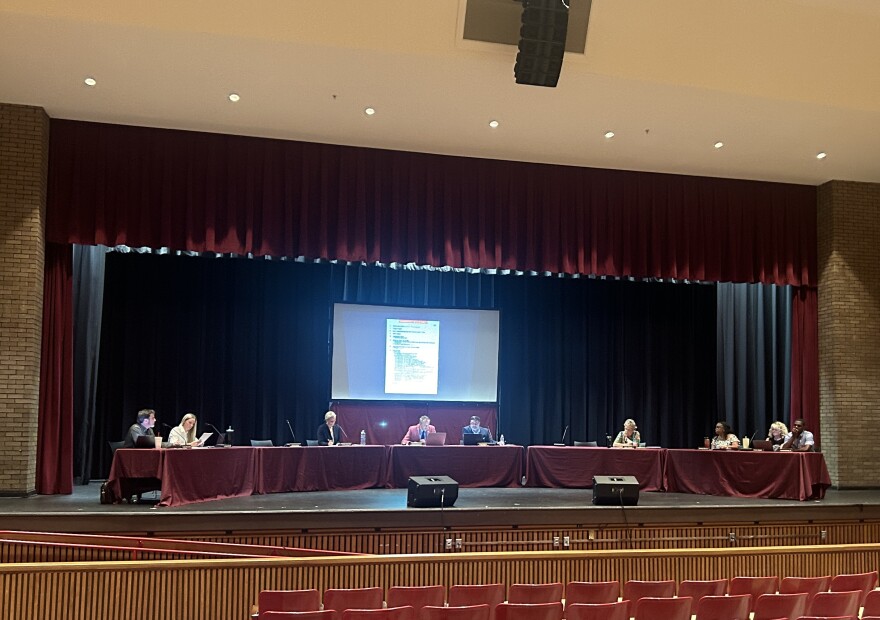The Milford School Board tabled a policy change on “controversial” and “sensitive” issues for the second time. Board member Adam Brownstein made the motion to table the proposed revisions until a committee is in place to edit the draft.
The committee will include administrators, community members, teachers and likely one or two Board members, according to Brownstein. He did not offer any additional details on when the group will be formed. The Milford School District will share more information on their website and social media as it becomes available.
The proposal was tabled last month after public commenters and the ACLU denounced the proposal, and a majority of Monday night’s public commenters remain opposed to the changes, which seek to limit district staff from including their own political aims or opinions in classrooms.
Language in the draft proposed in June and again Monday says the policy changes would promote content neutrality – echoed by Brownstein who says this policy is not intended to limit free speech in schools, but rather promote it.
One commenter asked how a neutral approach would function in a class discussing historical events and tragedies such as the Holocaust.
Kristina Feher, an educator in the Milford School District, attended the meeting.
“I think we can all agree that schools are not the place to push agendas,” Feher said during her comment. “Teachers aren't pushing their agendas, and neither should school boards. Instead of arguing about what does and what does not constitute a controversial issue, can we just focus on the work that needs to be done to improve our schools?”
Milford High School student Eli Rauch attended both meetings to voice opposition to the proposed revisions, which include banning district staff from displaying decorations of a “political” or “ideological nature” except on their desks. The restrictions would extend to things like Pride and Black Lives Matter flags.
“I personally feel, especially with flags, that they make people feel included, and it makes me feel safe,” Rauch said.
Feher displays a Pride flag in her classroom.
“It is simply a sign to those students who may need a place to go or someone to talk to,” Feher said.
Several commenters criticized the wording of the policy, calling it “confusing” and contradictory.
Brownstein still argued in favor of the changes.
“I tried to hear what everyone had to say, and I became the villain in all of this,” Brownstein said. “So, I'm prepared to vote against this policy tonight, because that's what you all want. Frankly, it's not what I want. I think this policy has merit, but again, I'm an elected official. I hear what you have to say.”
In his response to public comment, Brownstein also observed that several attendees spoke but did not stay to hear the Board’s response.
“I feel like the people should listen to the board a little bit more, to actually hear what they have to say,” Rauch, a student, said. “After people gave their opinions, they left and didn't hear the Board out… I don't think that's fair to the Board.”
A motion to permanently table the revision and another to table until the next meeting did not pass.
Brownstein made the third and final motion to table the matter until forming a committee. Scott Fitzgerald, the Board’s president, abstained from each motion.






